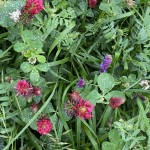More RSE workers, but will it be enough?
Bay Blue's Marian Hirst discusses her company's experience wit the scheme
Added 2 years ago
By Brenda Newth

In late September, the Government announced an increased cap for the Recognised Seasonal Employer scheme, that would see an additional 3000 workers brought to New Zealand to ease labour shortage pressure on the horticultural and wine sectors.
What’s new:
- 3,000 more workers
- RSE cap is now 19,000
- RSE workers now entitled to sick leave
- Employers commit to provide transparent, clear information, and independent support for RSE workers
Currently about 30%-40% of the country’s RSE workers are based in Hawke’s Bay. That’s somewhere between 4,800 and 6,400 workers. Concerns about exploitation and human rights abuses of RSE workers have led the Government to prioritise worker wellbeing.
Immigration Minister Michael Wood says Government is listening. “We are listening to industry… to ensure we strike the right balance by incentivising local employment, bringing in further additional workers, and also requiring working conditions to be improved.”
New Zealand Apples and Pears Inc CEO Terry Meikle welcomed the announcement, saying the 3,000 extra workers will help address the industry’s needs as it prepares for the next harvest.
“With this increase, our growers have the confidence to move forward with investment and business planning as they head into the new season.”
With borders closed, and the migrant worker labour force slashed, the past couple of seasons have been particularly challenging for growers. Last year Napier grower Kelvin Taylor said he had to leave 15% to 20% of his apple crop on the trees, with not enough hands available to pick the fruit.
Blueberry grower Marian Hirst, partner in Bay Blue, has a long association with the RSE scheme. Her workforce is made up of locals and RSE workers from Vanuatu, many of who have been with her for a decade.
She says: “Bay Blue is grateful for the recent increase in the RSE cap – and is thankful for the extra hands to help our local team with the upcoming harvest.
“The last three seasons have been incredibly difficult for everyone, with fruit unable to be harvested due to labour constraints. Our RSE team has chosen to return to our family business in Longlands, Hastings for many years. Most have been with us for 10-14 years, and we take the responsibility for their pastoral care and New Zealand experience very seriously.
“We welcome the Pacific Island Liaison representatives who also support our employees while they are here in New Zealand. Accommodation, transportation, and pastoral care has certainly been a positive, significant investment for our family business.
“Our RSE relationships are great for our orchard, Hawke’s Bay, New Zealand (export earnings) and the Vanuatu people and economy as they re-build post Covid-19. We love how their earnings directly benefit our employees’ families and villages in Vanuatu and how our people are building their own businesses back home, with learnings from New Zealand.”
As for the increase, Hirst says it is certainly appreciated for the season ahead, “but with new plantings and significant growth in the horticultural sector expected in the next few years, we will be looking for more help each season to support our local employees and the investment already committed”.

“Notwithstanding this, there remains a sizeable shortfall of people to meet this increasing labour demand.”
Minister Wood is upbeat about the contribution migrant workers will make in the coming season, saying that more than 30,000 working holiday visa applications had been received in the past 12 months.
“With over 6,200 Working Holiday makers in country, double the number we had in October 2021, we remain confident that further relief to the workforce shortages will come as we approach summer.”
It remains to be seen whether sector labour shortages will be eased.
Join the conversation
Be the first to leave a comment.
Leave a comment
All comments are reviewed before they are published on the website. Your email address will not be published.




Family-Owned Farm Embraces Regenerative Agriculture to Grow and Educate


